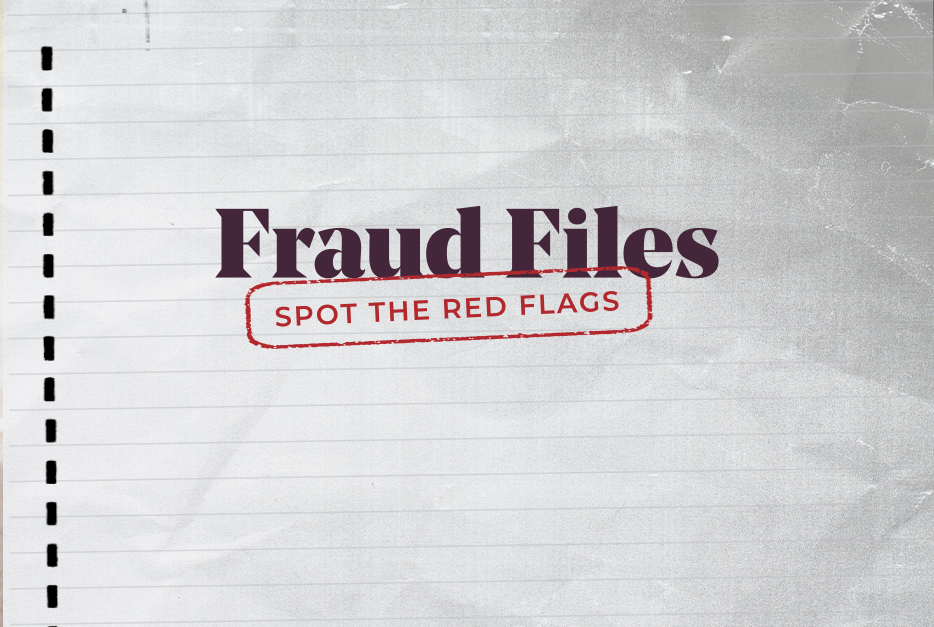Fraud Files: Singing the blues
What happened
Thanks to the powers of social media, celebrities appear more accessible today than ever before. Unlike pre-social media days, we no longer have to wait until we’re standing in line at the grocery store to read about celebrity gossip in the headlines of magazines. Famous people have taken control over their privacy by posting their own stories and updates on their preferred social media channels. And, with access to daily updates from our favourite stars, we’re finding ourselves caught in the very real depths of parasocial relationships.Parasocial relationships are one-sided relationships, typically used in the social media space, to describe the emotional connection a person feels when viewing content posted by a famous person. Having the kind of access to celebrities that social media provides can make us feel like we know them, and we might start thinking of them as friends. While many of us enjoy these glimpses into celebrity lives, it can create an emotional imbalance that could be used against us. Which is what happened to Emma.
After the long winter, it was finally a nice day and Emma decided to go for a lengthy walk with her dog. A few blocks into their walk, Emma spotted a man she thought looked familiar. As they passed on the sidewalk, the man smiled and said hello, and she was certain he was a famous singer. When she got home, Emma searched for the singer on Instagram and was delighted to see she was right. He had posted a story while out on his walk and she recognized the area in the background. Emma started following him and excitedly texted all her friends to tell them she’d just seen someone famous—and he’d even said hello to her!
Later that day, Emma was thrilled to see the singer had sent her a DM, thanking her for following him. She couldn’t believe he would reach out to her like that, but assumed he must have recognized her from earlier. She wasn’t sure if she should respond but decided to take a chance. She sent a message back saying she’d seen him out for a walk and asked what he was doing in her city. It didn’t take long for the singer to reply, and the two began a lengthy conversation that went on for several days. He explained that he was there working with a local children’s charity, and they chatted about the great work he was doing to help raise awareness for this important cause.
The scam
As the conversation continued, Emma wanted to show the singer she cared about kids, too. She asked if he knew how she could donate to the children’s charity he was working with. The singer was thrilled Emma wanted to get involved and told her he’d need a copy of her I.D. and $500 to register with the charity. As soon as she sent him a photo of her driver’s license, the singer advised her to go to a Bitcoin ATM to deposit the $500.After Emma made the initial deposit, the singer asked if she would be willing to provide him with her banking information, including her online banking passwords, so he could make deposits to her account on behalf of the charity. He explained it would be easier for them to run their deposits through her account because she’s local, rather than through his American bank account, and would save the charity thousands of dollars in fees. Emma was happy to help and sent all requested information to the singer. He told her he’d let her know when deposits were made to her account so she could withdraw the funds immediately and deposit them to the charity through a Bitcoin ATM.
Spot the red flags:
- Imposter syndrome: Although we seemingly have more access to celebrities through social media, it’s important to remember how easy it is for someone to impersonate a public figure online. Before you give money to anyone, do some research to ensure the charity is legitimate. You can Google the celebrity’s name, the charity name, and add the word “scam” to your search to see if anything comes up.
- Unsecure sharing of I.D.: You should not need to provide a copy of your I.D. to donate money to a charity. Reputable organizations that require I.D. will ensure you are providing it securely. If it’s a legitimate cause and they do need to see your I.D., make sure they are directing you to a secure platform. Social media platforms are not secure, and you should never share.
- Bitcoin ATM: It’s unusual for a charity to specifically ask for donations to be made through a Bitcoin ATM. Before you donate to a charity, you can research if they are known to accept Bitcoin donations. But to be on the safe side, it’s always best to donate through secure channels.
- Asking for banking information: Asking for your banking information so a local charity can run money through your account is a big red flag. Canadian charities are federally governed by specific rules and should have their own bank accounts to accept donations through. Before providing an organization with personal or banking information, ask a lot of questions and do your research to see if it’s needed and why it’s needed. You can always talk to a trusted person or contact your local SCU branch to ask for help in determining if a request is legitimate.
What happens on our side
SCU was alerted to potential fraud after a suspicious large cheque was deposited into Emma’s account and the money was withdrawn the same day. When looking at recent activity on her account, SCU noticed several smaller cheques had been deposited over the last few weeks, and each amount had been withdrawn the same day. SCU contacted Emma to inquire about these transactions. When she explained the children’s charity she was involved in—and how they asked to run donations through her account—SCU advised her they would have to freeze her account until an investigation could be conducted.
When it was determined the deposits from the charity were all fraudulent, SCU contacted her again to explain what they found. Emma felt embarrassed but wanted to share her story with as many people as possible so no one else would fall for a similar scam. Unfortunately, before SCU was alerted to the fraud, Emma had lost over $9,000. But because she was willing to work with SCU, the con artist was prevented from continuing to access her account.
Key takeaway: Any celebrity with a social media presence is at risk for having their name exploited by a scammer. Con artists are particularly interested in abusing the parasocial relationship between celebrities and their fans, especially those who comment a lot on a celebrity’s posts.
While it’s easy to feel connected to famous people online through social media, always remember to research before interacting with a celebrity through direct messages on any platform. Be extremely cautious of anyone asking you for money, and never give out copies of your I.D. or banking information. We also recommend that you review the transactions on your account regularly to ensure there is no suspicious activity.
Donating to charity is a wonderful way to give back to your community, but the safest way to do that is to go directly to the charity itself. Always start by doing your research to ensure it’s a trusted charity before you donate any money.
Sometimes, we can help spot and stop a fraud scam before a member loses money. Unfortunately, this is not always the case. Preventing fraud is an important responsibility we all share. SCU strongly recommends that members remain vigilant and learn to protect themselves from falling victim to fraud. Visit our Fraud Prevention Centre to learn more about fraud and how to spot it, and if in doubt, reach out to SCU for help at 1.800.728.6440.
You can also check out the Canadian Anti-Fraud Centre for information on known scams.
Does this story sound familiar?
If this has happened to you, or someone you know, here’s how you can report it: scu.mb.ca/fraudprevention/reportfraud



